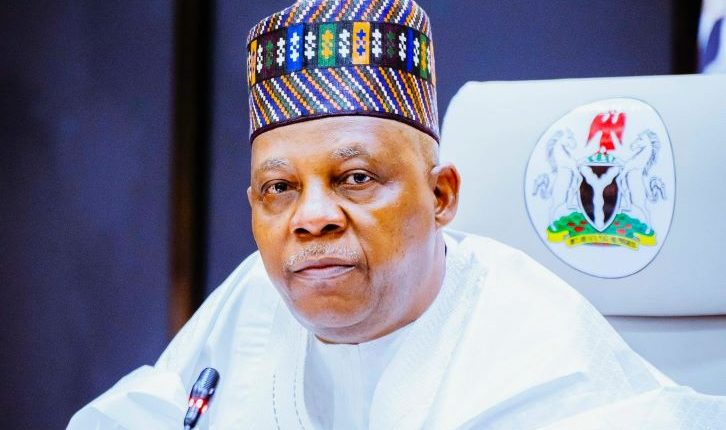The Nigerian government has taken steps to reinvigorate the National Addressing Council (NAC) in a bid to tame challenges associated with the addressing system in the country
Accordingly, a new NAC and a technical committee is to be inaugurated next year to drive the country’s agenda on planning, economic, and financial inclusion, as well as ensuring an effective national addressing system.
The decision was taken during a pre-meeting of the council chaired by Vice President Kashim Shettima at the Presidential Villa, Abuja.
Underscoring the need for the immediate standardization of Nigeria’s addressing system, the Vice President described the move as essential for improving service delivery, enhancing urban planning, and driving economic growth.
Talking to stakeholders at the meeting, the VP noted that standardising Nigeria’s addressing system is long overdue, adding that it will end decades of infrastructural deficits and create a systematic approach to national address mapping.
He said, “We cannot solve the challenges of urban planning, service delivery, or even basic navigation unless we establish a system that creates order. A robust addressing system is not just about convenience; it is about national development, security, and socio-economic progress.”
The Vice President decried the consequences of the current disorganised system, noting its impact on governance, logistics, and the financial inclusion of many Nigerians.
“We live in cities where most houses are either haphazardly numbered or not numbered at all. This does more than complicate address mapping—it undermines trust in address verification, slows emergency responses, and excludes millions from financial services,” he explained.
VP Shettima praised the foundational work done seven years ago when the National Addressing System initiative was introduced, noting, however, that there is a need to move beyond frameworks to actionable implementation.
He further explained that the meeting marked the beginning of a transformative journey towards a Nigeria defined by order, trust, and opportunity.
“We are not just solving logistical challenges; we are laying the foundation for a more organised, secure, and prosperous Nigeria. This is our collective responsibility, and we must see it through,” he said.
The VP’s charge at the meeting was followed by two presentations from the National Identity Management Commission (NIMC) and the Nigerian Postal Service (NIPOST).
Earlier in his remarks, the Deputy Chief of Staff to the President (Office of the Vice President), Ibrahim Hassan-Hadejia, said the focus of the meeting was to galvanize the federal government’s renewed efforts in driving economic and financial inclusion, among other targets.
He said leveraging opportunities in the National Addressing System would fast track government’s vision of attaining inclusivity and economic prosperity, especially for Nigerians in the rural areas.
The presentation by the National Identity Management Commission focused on enhancing the nation’s address verification system and building a critical infrastructure for the national addressing database project.
The overview of the National Addressing System by NIPOST highlighted the work done by the current management, emphasizing the need for harmonizing the address database in Nigeria.
The NIPOST presentation focused more on harmonizing the postcode with the national addressing system, deploying the latest technology, particularly geo-locating the physical addresses of Nigerians captured in the project.
The addressing system is aimed at giving identity to private and public buildings across the country.


Comments are closed.